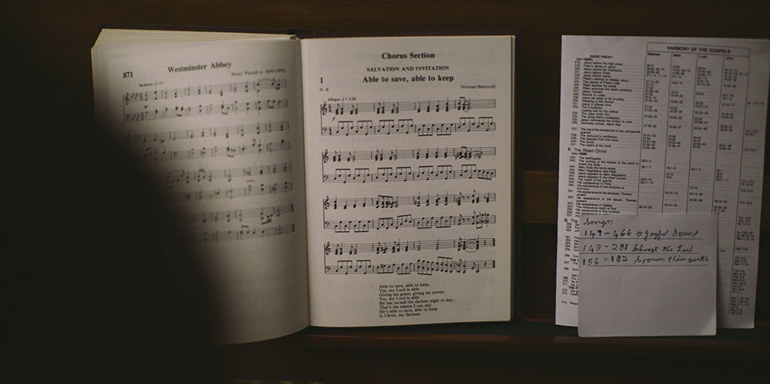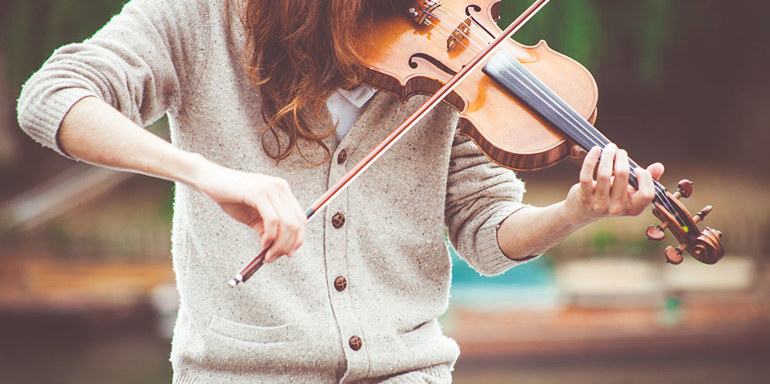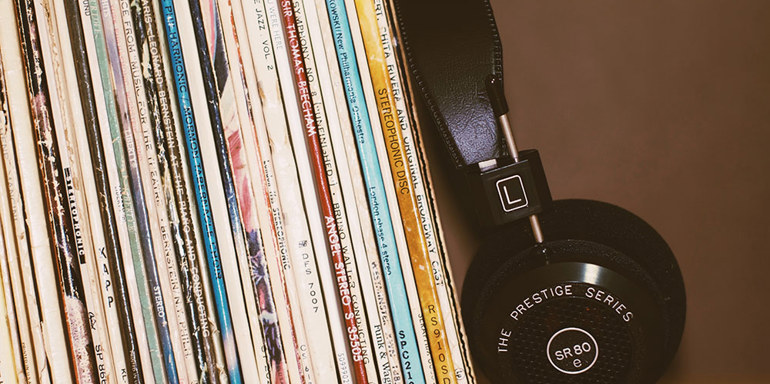Got an audition coming up for a place on a music degree?
It’s a nerve-wracking time for any musician, but with good preparation, those on-the-day nerves can be dealt with easily. Read these top tips from our resident experts to help you make the most of your opportunity!

Choosing your piece
Choose a piece that represents you
It’s important that you choose a piece that shows who you are as a musician. As Adam Martin, Principal Lecturer in Popular Music (Musicianship) says, “Try to show us what makes you you. For Pop Music, it’s not necessarily about choosing something off the Grade 8 syllabus. Choosing something you love and something that represents you will help us see what makes you tick.”
Keep it manageable
It might be tempting to think that you have to play the most challenging piece in an audition, but it’s important not to play beyond yourself, and to play honestly. “It’s always better to play something that you know you can play really well, rather than risking a more difficult piece that you haven’t quite gotten the hang of yet,” says Damien Harron, Programme Leader for Classical. “The key facet of a music audition is to demonstrate musicianship – which is hard to achieve if you aren’t playing fluently”.

Practice, Practice, Practice
It sounds like an obvious one, but make sure you know your piece like the back of your hand. Being faced with an unfamiliar environment at an audition can be unnerving – but you’ll feel much more confident if you know that your muscle memory will back you up. If you haven't already, make sure you get some lessons from a specialist in your chosen instrument. They will be able to expertly guide you through your piece and ensure you feel confident and ready to perform to the best of your ability!
Test it out with others
One of the best ways to push yourself forward as a musician is to play with other people. Jamil Sheriff, Programme Leader for Jazz suggests; “Try to get to some jam sessions to practise playing your music with a good rhythm section.” There’s always the opportunity to learn something from other musicians, and if you haven’t done much ensemble playing it’ll help to give you a grounding in the collaboration opportunities on offer in Music higher education.
Getting the interview right
Most people would admit to finding interviews stressful, but if your audition is an opportunity to prove your musical ability, then your interview is the chance to make it clear why you deserve a place on your chosen course. Have a clear idea of what you want to get across and practice saying it – and always prepare some questions for the panel too. Check out our handy hints!
Know what you want
Make sure you can clearly articulate why you want to do your chosen course. “Have some idea of the module layout, ethos of the institution, facilities and why the subject appeals to you” advises Adam Martin. Having an idea of what you want to achieve, and where you might like to be in five years shows that you are focussed and determined.
Don’t wing it
Don’t be afraid to admit that you don’t know something when asked – instead, turn it into a positive learning opportunity. As Damien Harron points out, “It’s better to say ‘I don’t know much about that, but I am really interested in finding out more about it’ than it is to try to pretend”. Remember you’re talking to a panel of experts, so they will know!

Research your influences
Be straight up about what kind of music you like - it’s OK to have an opinion! Be prepared to talk in-depth about your influences. “We want to know why these performers appeal to you and what your favourite albums are.” Says Jamil Sherrif “We will know the recordings you are talking about and will enjoy discussing the music with you. If you haven’t already, take yourself on a listening journey – and research the history and background.”
Highlight extra-curricular activities
Be confident in the worth of doing something outside of school – whether that’s playing a gig, writing a review, or going to see some music. All of these things help to broaden your knowledge and experience of music and will help demonstrate your commitment and enthusiasm, which are vital to securing a place on any music degree.







